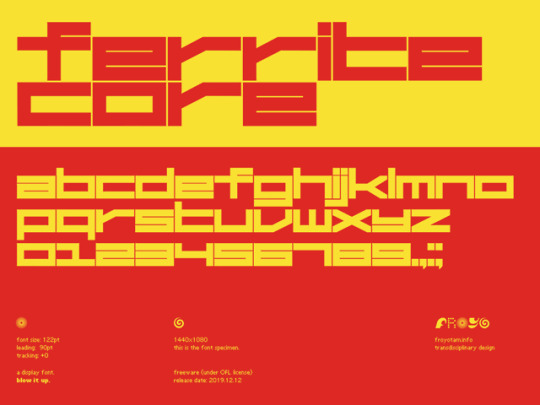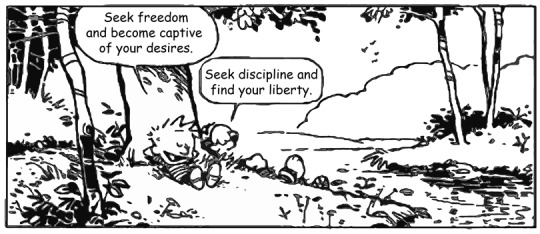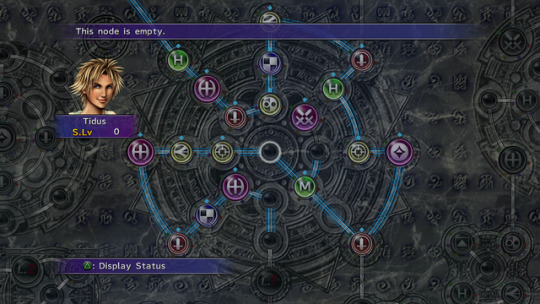Text
My two cents on laziness, work & the robots taking our jobs:
The idea that economically productive labor is a major source of personal fulfillment is extremely historically contingent. In the ancient world, business was something sordid and best avoided, in contrast to civic duty or otium in the positive sense, intellectually and socially productive leisure. Looking east a bit, the rabbis of the Talmud had day jobs, but there’s a reason they’re hardly ever mentioned - labor is praiseworthy only insofar as it allowed them to support themselves while they got on with their real work.
I can’t really speak to acedia and the sin of sloth in the Christian context. I do get the sense that productivity as a moral concern emerges at some point in the middle ages; certainly the positive idea of leisure never lost hold in aristocratic circles. Even then, I don’t think anyone was concerned with the effect of indolence on quality of life rather than a mark of bad character, it’s not like personal fulfillment really existed as a concept. I do know the Renaissance is generally more positive about the concept of leisure. The Reformation happens, early capitalism, I’m sure we’ve all read Max Weber on the Protestant Work ethic.
Certainly the elevation of labor as something honorable rather than shameful has a lot to do with class politics going back to at least the 18th century and probably earlier. In the American context, there’s some really interesting work by Judith Shklar on the role of hard work in formulating a national civic identity, which she reads as a reaction to the perceived thread of aristocratic idleness with a strong racialized component rather than a secularized Protestantism.
The point of all this isn’t to give a comprehensive history of the concept of work. I only want to point out that attitudes towards the value of labor are all over the place, even in the West and even in recent history. Whole societies have gotten by just fine on the assumption that work is terrible and everyone should do as little of it as possible. The claim that idleness is psychologically unhealthy is in particular really new, most historical arguments in that vain focus much much more on idleness as a sign of moral corruption, or as dereliction of duty to provide for one’s family or contribute to society - obviously irrelevant in the post-scarcity society we’re positing.
I think the absence of work is often unhealthy for Americans - and to a lesser extent, everyone in broadly Christian-inflected Western culture - because we live in a society that values economic productivity to an extreme and historically unusual extent. Most people are receptive to their culture and feel like failures when they fail to achieve the things they’re conditioned to believe are important.
Personally, I believe our obsession with work is a form of societal stockholm syndrome. Most jobs exist on a spectrum of soul-crushing to merely frustrating and undignified in ways it’s possible to ignore. I don’t think the problem here is unique to capitalism, either. The historical socialist glorification of work makes sense in context, and people do feel better about performing backbreaking manual labor if they feel they have control over the process and a stake in the cause, but that’s obviously as stopgap measure because - surprise - backbreaking manual labor is terrible. It’s true that most people alive today really do value being able to work and provide for their families, it’s also true that men in honor cultures valued their reputation enough to die for it. Some values are objectively dumb.
Less flippantly, a lot of what goes wrong with the world can be reduced to cultural values failing to track actual sources of human happiness. Attitudes towards work track underlying economic and social conditions. A real post-scarcity society would be a golden opportunity for cultural engineering. Let’s recognize the importance of leisure! Roman culture was incredibly fucked up in almost every possible way, but I do think they got this one right - real intellectual and creative accomplishments are only possible with space to rest and room to breathe. Most people are better and happier moving at their own pace.
This doesn’t mean that we should just make room to be lazy. I’m more optimistic than most people that, given resources and a safety net and a complete lack of stigma, most people would use their leisure positively (even if their activities don’t contribute much to society at large). Even so, I think society as a whole would benefit from structures that reward creative efforts (as well as the fulfillment of unpleasant but necessary duties) with respect and acclaim.
The real challenge - and the real reason not to recreate an aristocratic culture - is to avoid forming social systems that incentivize endless, exhausting, zero-sum status seeking. People are just as capable of working themselves ragged for social position as for money. I’m not sure how to solve this one.
426 notes
·
View notes
Photo

Ferrite Core – Froyo Tam (2019)
Free and open source display typeface inspired by Wip3out and the Sinclair logo. Download link: https://github.com/froyotam/ferrite-core/
469 notes
·
View notes
Text
Instinctual Variants as Interior Design Styles
sp/so - scandinavian, midcentury modern
simplicity with soft playfulness. home is where the family comes together so everything needs to be comfortable and inviting to rest there. hygge and lagom are both very sp/so concepts; being cozy but not too much.


so/sp - shabby chic, contemporary
like straight out of a catalog. pretty but a bit impersonal. pinterest is the best friend in offering decor ideas. “live love laugh” spirit throughout the whole home.


sp/sx - colonial, dark victorian
most old-timey out of all. carefully curated, with personal history attached. not afraid of dark colors. elegant nobility at best, fusty at worst.


sx/sp - industrial, rustic
rich in textures. many natural materials: leather, wood, metals. wide open spaces mixed with a few confined areas. the place is like a living entitiy in itself and mirrors the owner’s quirks.


sx/so - hollywood regency, eclecticism
dramatic, colorful, and always one of a kind. somewhat vain and egocentric but rightly so. weird combinations of materials and furniture that go together surprisingly well.


so/sx - boho, beach house/coastal
inviting, lots of sitting space. beanbags, rugs… everything is a lounge area. travel memorabilia proudly displayed to show worldliness and to delve into dreams of foreign places.


666 notes
·
View notes
Photo

Madam C. J. Walker (1867-1919) is remembered today as one of the first and most successful female entrepreneurs, one of the wealthiest African American women of the century, and the first female self-made millionaire in the USA. Her fortune was the result of her highly popular business venture, the Madame C.J. Walker Manufacturing Company, which sold beauty and hair products for black women.
She was the first in her family to be born free, after the Emancipation Proclamation. She began by selling hair care products door-to-door, and eventually opened a beauty parlour that grew into a steady, multi-million-dollar business. At its height, the company employed 20,000 women, and spread across the Americas. She became a patron of the arts and a philanthropist devoted to helping the black community around her.
627 notes
·
View notes
Conversation
Personality theory will ruin your life
Me: Okay, I took the MBTI test!
The internet: COGNITIVE FUNCTIONS
Me: Great, learned cognitive functions
The internet: ALSO YOU SHOULD CHECK OUT SOCIONICS
Me: I...will get to that. In the meantime I took an enneagram test!
The internet: WHAT ARE YOUR WINGS
Me: I have wings?
The internet: YES, WELL, ONE ANYWAY
Me: Okay I figured out the wing.
The internet: OH GOOD NOW WHAT'S YOUR TRITYPE
Me: The fuck
The internet: HEAD. HEART. GUT. WATER. EARTH. FIRE. AIR. THESE ARE THE VOYAGES OF THE STARSHIP ENTERPRISE. I MUST BECOME...SOMETHING ELSE.
Me: At least I know my zodiac sign.
The internet: THAT'S ONLY YOUR SUN SIGN.
Me: What.
The internet: DO YOU KNOW WHERE THE MOON WAS
Me: I was literally a newborn baby.
The internet: DO YOU KNOW WHERE THE MOON WAS
Me: OBVIOUSLY NOT. I give up, I'm going outside.
The internet: OKAY GREAT WHILE YOU'RE AT IT TELL US WHERE THE MOON IS
3K notes
·
View notes
Text
I can’t understand how i can apply for something and then simultaneously dread it.
How i can apply for a job but dread the idea of actually getting that job.
These internal contradictions. ….
18 notes
·
View notes
Text
Each of the Cognitive Functions as an Infinity Stone
Si: Time Stone
Se: Space Stone
Fi: Soul Stone
Fe: Soul Stone
Ti: Mind Stone
Te: Power Stone
Ni: Mind Stone
Ne: Reality Stone
22 notes
·
View notes
Text
The 5w4 tag is also Everything You Needed To Know About Brenna But Were Afraid To Ask.
General Description
Average 5/4 is the prototype personality for research scientists. Analytical and detached from their emotions, but passionate about beauty and truth, they want to find the ultimate, simple explanation for everything. Their intellectual fiveness makes them likely to engage in long, professorial monologues, while their four-wing gives them a shy self-consciousness. Unlike the more depressive 4/5, they are likely to have a generally optimistic view, although they can get depressed if they become overwhelmed by the world’s demands. 5/4s are usually less interested in social interactions than the more other-dependent 5/6.
Balanced and Transcendent States
Balanced 5/4 is more able to participate in life. When the fiveish desire to withdraw and sort things out is no longer compulsive, then the consciously chosen time alone becomes a tool for understanding the world, rather than an entrapping habit. The fourish passion for beauty emerges as the conscious result of harnessing the emotions rather than being their slave. Healthy 5/4s begin to deeply understand the simple, elegant way that the awesome complexity of the world emerges from fundamental principles. They find great joy in watching and learning.
When the perception of five and the passion of four are augmented by eight’s power and leadership, plus one’s intuitive wisdom, clear comprehensions can be transmitted to others. Very balanced 5/4s can be tremendously creative teachers of How The World Works, who explain things with clean, elegant sentences. Yet for all its simple clarity, their teaching carries with it a profound appreciation for the subtle beauty of Creation. Come with me on a journey of discovery. Let’s look together at the awesome profundity of Nature and Consciousness.
Unbalanced and Unhealthy States
Unbalanced 5/4 gets lost in the details. The compulsive analysis of five can lead to elaborate pseudo-logical constructions designed to explain everything. The four-wing’s emotionality adds a flavor of dramatic hopelessness. Others Simply Do Not Understand. No one could understand. So 5/4 retreats to a place of safety, hoping to escape from view, continuing to uncover the truth. There is little to no social involvement.
In the extreme, the panic and scattered mania of seven combine with twoish self-congratulatory hysteria. In a seeming reversal, 5/4 can come back into the world, awkward and excitable, ready to bolt but equally ready to passionately defend a bizarre, baroque fantasy world. As inner tension builds, schizoid withdrawal becomes more and more likely. The end result is a kind of terrified fugue, completely cut off from reality. The only escape from the constant overwhelming chaos is inward.
62 notes
·
View notes
Quote
Hazlo, y si te da miedo, hazlo con miedo.
Aries, Géminis, Acuario, Escorpio, Sagitario, Leo, Tauro.
(via todoastrologia)
3K notes
·
View notes
Quote
1. Associative orientation: Imaginative, playful, have a wealth of ideas, ability to be committed, sliding transitions between fact and fiction.
2. Need for originality: Resists rules and conventions. Have a rebellious attitude because of a need to do things no one else does.
3. Motivation: Have a need to perform, goal oriented, innovative attitude, stamina to tackle difficult issues.
4. Ambition: Have a need to be influential, attract attention and recognition.
5. Flexibility: Have the ability to see different aspects of issues and come up with optimal solutions.
6. Low emotional stability: Have a tendency to experience negative emotions, greater fluctuations in moods and emotional state, failing self-confidence.
7. Low sociability: Have a tendency not to be very considerate, are obstinate and find faults and flaws in ideas and people.
Norwegian researchers find the 7 characteristics of highly creative people. Pair with John Cleese on 5 factors to make your life more creative and Ira Glass on the secret of success in creative work.
Particularly interesting and counter-intuitive is #6 – but then again, we do know that emotional excess is essential to creativity.
(via explore-blog)
1K notes
·
View notes
Photo

Seek freedom and become captive of your desires. Seek discipline and find your liberty.
247 notes
·
View notes
Photo

The Ti-Si loop in INTPs
There are multiple descriptions of the Ti-Si loop saying that it is when INTPs are stuck analyzing past events over and over again. While that can be part of the loop, it’s not always the case.
A lot of INTPs in the Ti-Si loop are simply stagnant - permanently stuck in their comfort zone i.e. in their own head and their own room. Similarly, younger INTPs with an undeveloped Ne can also be this way.
Looping INTPs would think that’s it’s sufficient enough to analyze the world by themselves, and that they can find all the solutions in their own head, becoming habitual with mulling over their own thoughts without seeking external input or new experiences (i.e. what the Ne needs to expand the web of creative connections). They are stuck in the loop of validating their own existential crisis over and over again without trying to find ways to get out of it.
To get out of this loop, it’s simple: engage your Ne.
Ne is an extraverted function. It needs inspirations and new input from the outside world. If you do not feed your Ne, the connections and ideas you can come up with are extremely limited.
How do you engage your Ne? Get new experiences!
Go to a new coffee shop in town. Go to that restaurant you always wanted to visit but haven’t. Go to an art gallery or museum alone. Go to a bookstore and browse through a bunch of books. Learn a new topic. Expand your knowledge. Go to a social event, or simply meet a friend, share your ideas, and get their opinions.
Ti is an antagonistic functions at times. Your Ti becomes much sharper when it notices inconsistencies - when it’s trying to contradict someone or something else. This cannot happen if you’re just by yourself in your own head. Your Ti and Ne need to work together to be strong. So, get out there and and give yourself some brain food
-eilamona
ps. This probably applies to INFPs too
[ MBTI Merch | Support eilamona on patreon ]
682 notes
·
View notes
Note
Out of curiosity, what do you think about the Meyers-Briggs?
It’s kinda shit.
Some reasons of the many reasons why:
It wasn’t developed by scientists, there was no experimental testing in its development, and it’s based on Jung’s (very outdated) theories.
In real life, people exist on a spectrum; in the MBTI, you have to be 100% an extrovert or 100% an introvert, with nothing in between.
There’s about a 50% chance that you’ll get put in a different personality category if you take the test after only a five week gap. If it were a good test, you’d be in the same category consistently.
It ignores a lot of other key personality traits, for example, emotional stability vs reactivity (how calm you stay under pressure). It also doesn’t even completely measure the categories it’s supposed to.
So take it and wear the label if you want; humans actually often like putting ourselves in snappy-sounding categories - it’s validating and satisfying to know we belong to a group.
Just realize that it has about as much meaning as your astrological sign - you get what meaning out of it that you put into it.
(By the way, I’m either INFJ or INFP. It switches practically every time I’ve taken the MBTI over the years.)
https://www.theguardian.com/science/brain-flapping/2013/mar/19/myers-briggs-test-unscientific
https://www.psychologytoday.com/blog/give-and-take/201309/goodbye-mbti-the-fad-won-t-die
https://op-talk.blogs.nytimes.com/2014/07/18/why-myers-briggs-is-totally-useless-but-wildly-popular/?_r=0
Disclaimer // Support Scriptshrink onpatreon!
190 notes
·
View notes




